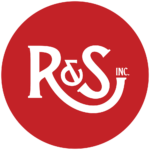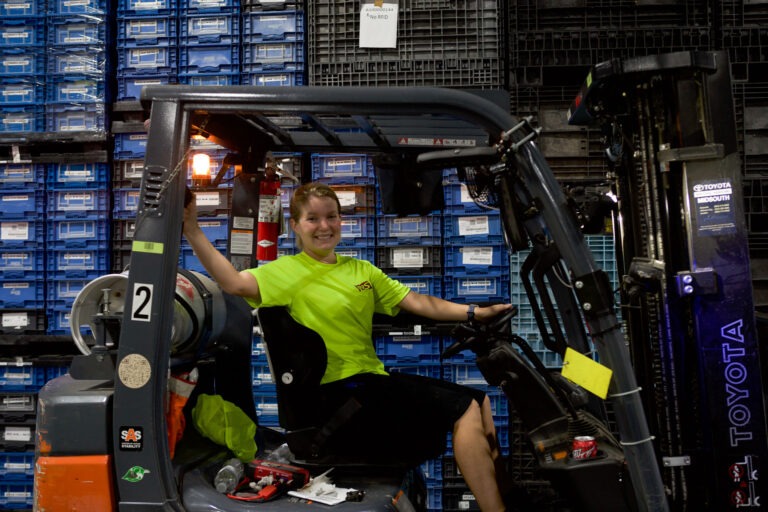Manufacturers of perishable goods face unique challenges due to the delicate nature of their products, which often have a short shelf life or require strict temperature control. This article outlines the key challenges these manufacturers encounter and emphasize the significance of well-defined processes for safe handling and storage. Third-Party Logistics (3PL) services can play a crucial role in meeting the distinct requirements of perishable goods distribution.
Challenges in Distributing Perishable Goods
Some challenges when it comes to distributing perishable goods include:
1. Temperature Control and Monitoring
To prevent spoilage, perishable goods must be stored and transported within specific temperature ranges. Fluctuations in temperature during storage and transit can lead to quality degradation or even complete product loss.
2. Short Shelf Life
Perishable goods have a limited time window for distribution, which necessitates efficient and timely logistics processes. Delays in transportation can lead to expired goods, resulting in financial losses for manufacturers.
3. Product Fragility
Some perishable goods are delicate and susceptible to damage during handling and transit. Proper packaging and careful handling are essential to prevent product deterioration.
4. Regulatory Compliance
Manufacturers must adhere to stringent regulations and guidelines for storing and transporting perishable goods, especially those involving food and pharmaceuticals. Non-compliance can result in legal penalties and reputational damage.
5. Traceability and Transparency
Ensuring product traceability is crucial for identifying and addressing issues quickly in the event of recalls or quality concerns. Lack of traceability can hinder timely responses and erode consumer trust.
6. Inventory Management
Effective inventory management is essential to minimize overstocking, shortages, and waste. Real-time visibility into inventory levels is vital for optimizing distribution.
7. Transportation Efficiency
Identifying the most efficient transportation routes and modes minimizes transit time and maintains product freshness.
Importance of Clear and Auditable Processes
Having transparent and auditable processes for handling and storing perishable goods is paramount. These processes ensure that every step, from manufacturing to delivery, is meticulously monitored and documented, reducing the risk of errors and ensuring compliance with industry regulations.
Well-defined processes offer several benefits:
- Quality Assurance: Clear processes help maintain product quality and prevent spoilage. They enable manufacturers to identify and rectify issues quickly, minimizing the potential for product losses due to mishandling or storage problems.
- Regulatory Compliance: Auditable processes assist in meeting regulatory standards. Manufacturers can demonstrate adherence to industry regulations during inspections, avoiding penalties and legal consequences.
- Customer Confidence: Establishing robust processes enhances customer trust. When consumers are assured that products are handled and stored correctly, their confidence in the brand grows, leading to brand loyalty.
- Efficiency Gains: Defined processes streamline operations, reducing the likelihood of delays and errors. This results in efficient logistics and distribution, maximizing the shelf life of perishable goods.
The Role of 3PL Services in Overcoming Challenges
Third-Party Logistics (3PL) services specialize in managing complex supply chain operations, making them invaluable partners for manufacturers dealing with perishable goods. Here’s how they can help:
- Expertise: Third-party Logistics providers have expertise in handling perishable goods logistics, including temperature-controlled transportation, ensuring that products maintain their integrity throughout the supply chain.
- Technology and Infrastructure: They often have advanced technology and infrastructure to monitor temperature, humidity, and other conditions crucial for preserving perishable goods.
- Optimized Routes: They can optimize transportation routes and modes, minimizing transit time and reducing the risk of temperature fluctuations.
- Inventory Management: They provide real-time visibility into inventory levels, helping manufacturers make informed decisions about distribution and replenishment.
- Regulatory Compliance: Experienced 3PLs stay updated on industry regulations, ensuring that products are transported and stored in compliance with relevant standards.
- Risk Mitigation: With their expertise, 3PLs can mitigate risks associated with perishable goods distribution, minimizing potential losses.
Manufacturers of perishable goods face various challenges, ranging from temperature control to regulatory compliance. Manufacturers can mitigate risks, ensure product quality, and enhance customer confidence by implementing transparent and auditable processes for safe handling and storage. The support of experienced Third-Party Logistics (3PL) services is invaluable in addressing these challenges and optimizing the distribution of perishable goods.
With their specialized expertise and resources, 3PLs play a pivotal role in ensuring that products reach consumers in optimal condition while adhering to industry standards. Contact us here at R&S Logistics for more information on 3PL services to help combat your challenges in distributing perishable goods.


